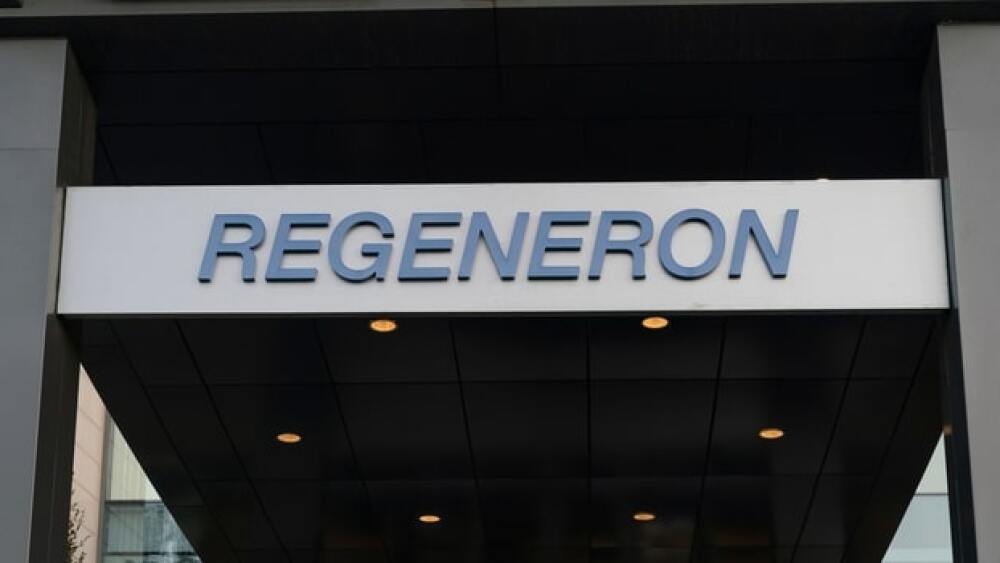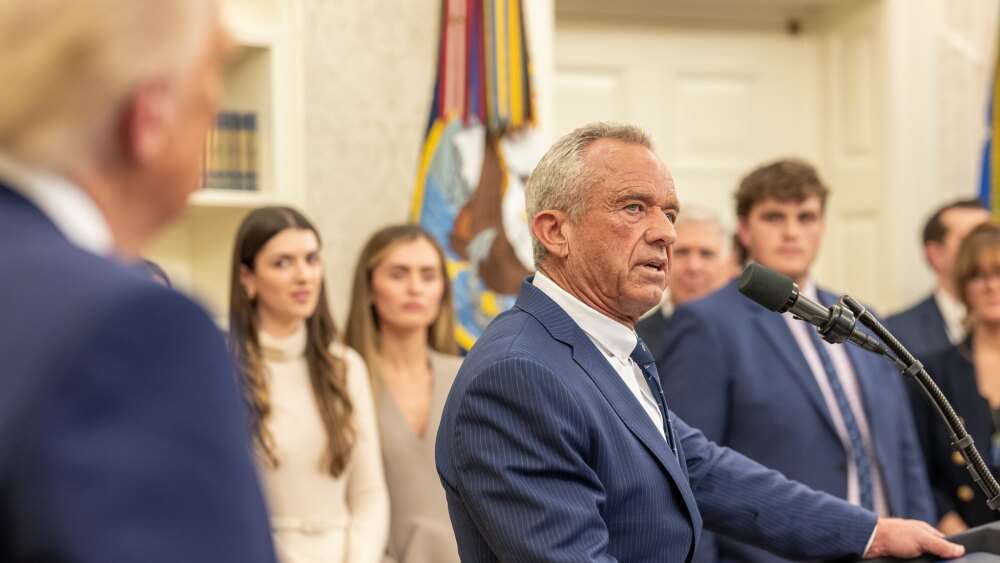For 2021, with $6.19 billion in sales the monoclonal antibody counted for a little less than one-third of Regeneron’s overall $16.07 billion revenue.
Lev Radin/Shutterstock
For months, Regeneron’s REGEN-COV monoclonal antibody was a valuable asset for treating physicians as the Delta variant of SARS-CoV-2 swept across much of the world. As a result, the monoclonal antibody treatment became a major driver for the company, generating $6.19 billion in 2021.
REGEN-COV, a combination of casirivimab and imdevimab, first received Emergency Use Authorization from the U.S. Food and Drug Administration in November 2020. Then, in July 2021, the FDA greenlit a lower dose version of the monoclonal antibody. However, at the end of 2021 with the rise of the Omicron variant, treating physicians began to see less efficacy from REGEN-COV. The decline in efficacy from Regeneron’s monoclonal antibody, as well as Eli Lilly’s combination of bamlanivimab and etesevimab was enough for the FDA to amend the EUA to ensure that the treatments were not provided to patients with confirmed diagnoses of infections related to Omicron. At the time of the FDA’s announcement, the Omicron variant was responsible for about 99% of infections, so the decision brought the revenue-driving momentum of REGEN-COV to a halt.
Still, for 2021, with $6.19 billion in sales the monoclonal antibody counted for a little less than one-third of Regeneron’s overall $16.07 billion revenue. In the fourth quarter alone, REGEN-COV brought in $2.30 billion, a little less than half of the $4.95 billion of the company’s Q4 revenue.
While REGEN-COV does not show much efficacy against Omicron, Leonard S. Schleifer, president and chief executive officer of Tarrytown, N.Y.-based Regeneron said the company is working to develop next-generation antibodies that are active against Omicron and all other variants of concern. New therapeutic candidates could enter clinical development in the coming months, the company noted.
The monoclonal antibody has certainly been a key revenue driver for Regeneron, but it wasn’t the only drug that padded the company’s bottom line. Other key drugs include dry eye treatment Eylea and Dupixent, the asthma and eczema drug co-developed with Sanofi. Eylea generated $5.79 billion in 2021, a 17% increase over the previous year.
Dupixent saw its sales increase 53% in 2021, Sanofi reported. The drug brought in about $6 billion for the year. Regeneron will receive a cut of the total and that amount will likely increase due to new data showing the drug’s efficacy in multiple other diseases with underlying type 2 inflammation, including prurigo nodularis and eosinophilic esophagitis. Regeneron and Sanofi anticipate filing additional regulatory submissions in these indications. Additionally, a supplemental Biologics License Application (sBLA) for Dupixent for children aged 6 months to 5 years with moderate-to-severe atopic dermatitis was submitted to the FDA.
“In 2021, Regeneron delivered strong results across our core business with impressive Eylea and Dupixent growth, while also helping address the ongoing pandemic by delivering REGEN-COV to millions of patients,” Schleifer said in a statement.
Regeneron expects to build on its 2021 successes this year.
“For 2022, we remain focused on building on Eylea’s success, expanding approvals and patient reach for Dupixent, pursuing new indications for Libtayo, and reading out data from our oncology pipeline – all while continuing to progress our diversified earlier-stage pipeline. We also remain committed to our efforts to fight the COVID-19 pandemic and address the significant need for effective treatments and preventative approaches to SARS-CoV-2,” he added.
The company’s pipeline remains strong with multiple assets in development, including studies for three costimulatory CD28 bispecifics targeting prostate cancer, ovarian cancer and other solid tumors. Regeneron has more than 30 product candidates in clinical development, including a number of marketed products for which it is investigating additional indications. One asset that could pick up a new approval is the company’s oncology drug, Libtayo (cemiplimab). The FDA accepted an sBLA for Libtayo combined with chemotherapy for advanced non-small-cell lung cancer. A regulatory decision is expected by Sept. 19.
Featured Jobs on BioSpace





